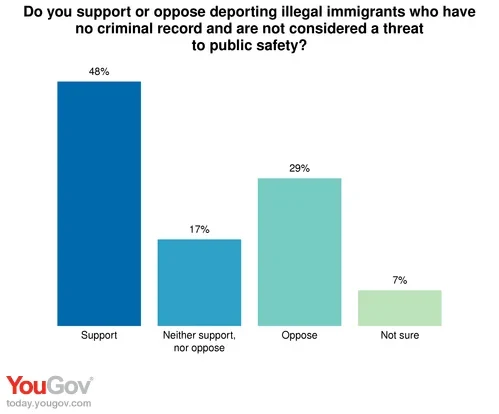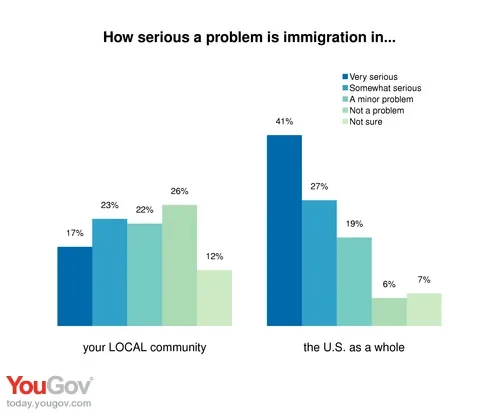Although the Obama Administration is suspending deportation orders for many illegal immigrants with no criminal record, those immigrants get little sympathy from Americans: in this week’s Economist/YouGov Poll, Americans would deport even those here illegally with no criminal record and who pose no threat to public safety. The public is more conflicted over deporting those brought to the U.S. as minors and those who have graduated from American high schools, individuals whose cases the Administration is especially focused on.

Support for deportation in general is highest among Republicans (77%). Independents favor it 48% to 28%, and Democrats oppose deportation 44% to 33%. 19% of Hispanics would deport illegals. Those under 30 also oppose deporting illegal immigrants who do not have a criminal record.
National opinion changes dramatically if the illegal immigrant has served in the U.S. military. A majority would not deport an illegal immigrant who has served in the U.S. armed forces. And this opposition is non-partisan — Republicans and Democrats agree that military service should prevent deportation. But one in four Americans still would deport such individuals.
Graduation from an American high school or having been brought to the U.S. illegally as a minor also mitigates some negative views. Opinion is closely divided on what should happen to these individuals. And there is a close division, too, on deporting illegal immigrants who are in a committed same-sex relationship with an American citizen. 39% would deport those individuals, 31% would not.
Do you support or oppose deporting illegal immigrants under the following circumstances?
| Support | Neither support, nor oppose | Oppose | Not sure | |
|---|---|---|---|---|
The individual was brought to the | 37% | 18% | 38% | 7% |
The individual graduated from a U.S. | 39% | 21% | 33% | 7% |
The individual served in the U.S. | 24% | 16% | 53% | 7% |
The individual is in a committed | 39% | 22% | 31% | 8% |
But how important is immigration as an issue? 5% (more in the West) call it the country’s most important issue. And two in three say it is a serious problem in the United States. But it is a local problem only in some places. Overall, 40% call it a serious problem locally — but a majority in the West views it as serious in their own communities.







